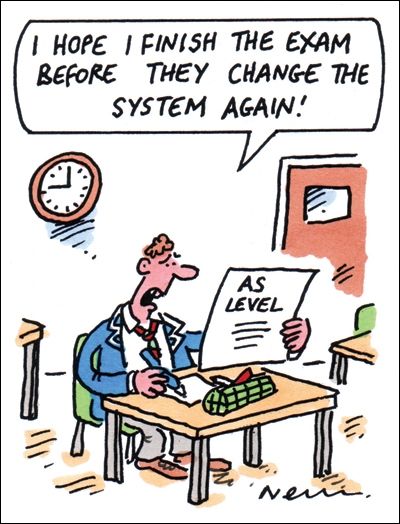
- One of the UK’s most vocal vice-chancellors has stepped down suddenly because of ill health, it was announced last week. Patrick McGhee, vice- chancellor of the University of East London and chair of the Million+ group, informed staff on 23 January that he was leaving the former role. Professor McGhee, who took over at UEL in February 2010, said he hoped “to return to making a full contribution to higher education leadership in the UK in the not-too-distant future”. Deputy vice-chancellor John Joughin has taken temporary charge at UEL, while Michael Driscoll, vice-chancellor of Middlesex University, has become acting chair of Million+.
- The University of Cambridge has led the attacks on education secretary Michael Gove’s plans to reform A levels, The Daily Telegraph noted on 24 January. Indeed, senior admissions tutors are so incensed at plans to effectively scrap AS levels, described as “the most reliable indicator [of ability] available”, that they are considering reintroducing university entrance exams, the paper reported on January. Cambridge’s reaction to the changes suggests a schism on the issue might be opening up within the Russell Group of elite universities, the only group to offer any support to Mr Gove’s plans. According to the Daily Mail on 23 January, Russell Group professors will join new subject committees in core subjects to vet the “tough new A level”. This would represent a change of heart after the group noted glumly in a statement to Ofqual seven months ago that committing academics to the project would involve “real pressures on time and resources”.
- An “endless litany of so-called reforms” has introduced “chaos” into the academy, a former vice-chancellor has suggested. Sir David Melville, former head of the University of Kent and Middlesex University, said the sharp dip in undergraduate admissions at many institutions this year was the “result of policies produced on the hoof”. Speaking at the CIPR Education Journalism Awards at the House of Commons on 24 January, he said: “When tens of thousands of places were left unfilled, including drops of over 10 per cent at Russell Group universities, they describe all this as ‘a market introducing dynamism’. Anyone with an elementary knowledge of physics knows the difference between chaos and dynamics.” Four Times Higher Education journalists were nominated for awards, with reporter Jack Grove taking the runner-up prize for Outstanding Higher Education Journalism. THE’s sister title, TES, took the lion’s share of the awards.
- The death of IRA bomber Dolours Price is likely to end a two-year legal battle over the release of interviews with former terrorists by Boston College academics, The Times reported on 25 January. Ms Price, who was convicted of the 1973 Old Bailey bombing, was one of a number of former Loyalist and Republican paramilitaries who gave taped interviews to a research project on the Troubles on the proviso that the tapes would not be released while they lived. Attempts by the Police Service of Northern Ireland to seize interview transcripts relating to the murder of 37-year- old Jean McConville in 1972 have been opposed by the college. Boston academics said that despite Ms Price’s death, the interviews would be handed over only if the US Supreme Court rescinded its decision to block their release.
- Although gaining access to the right data is a problem for many PhD students, few will have the heir to the throne blocking their efforts. But that is what happened to John Kirkhope, a doctoral student at Plymouth University, whose attempts to gather information on the Prince of Wales’ tax affairs were thwarted by mandarins, the Mail on Sunday reported on January. Prince Charles used the Official Secrets Act and the Human Rights Act to block access to the Duchy of Cornwall’s secret tax arrangements - even though HM Revenue and Customs said disclosure was in the public interest, the paper reported. HMRC was forced to change its decision after the Cabinet Office, which sought advice from Prince Charles, objected to the release. Civil servants might also have glimpsed the none-too-friendly name of Mr Kirkhope’s proposed thesis: “The Duchy of Cornwall: A Feudal Remnant”.
Register to continue
Why register?
- Registration is free and only takes a moment
- Once registered, you can read 3 articles a month
- Sign up for our newsletter
Subscribe
Or subscribe for unlimited access to:
- Unlimited access to news, views, insights & reviews
- Digital editions
- Digital access to THE’s university and college rankings analysis
Already registered or a current subscriber? Login